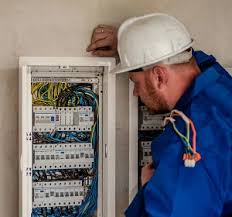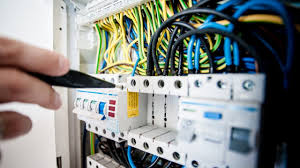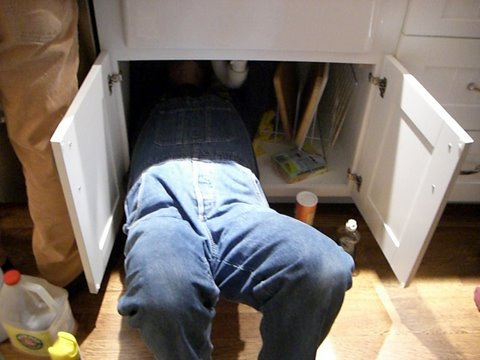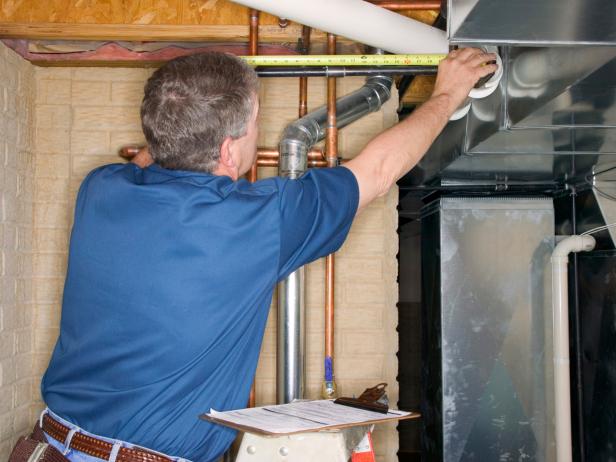Electrical Training Products
Electrician’s Guide to the Building Regulations includes the latest guidance on third-party certification schemes and covers relevant parts of the Building Regulations, including Fire Safety, Ventilation and Conservation of Energy.
This building regulation guide has been fully updated to BS 7671:2018. The 18th Edition IET Wiring Regulations publishes in July 2018 and comes into effect on 1st January 2019. All new installations from this point must comply with BS 7671:2018. Inside this guide, you’ll find an in-depth and comprehensible breakdown of the building regulations from an electrician’s perspective.
For more information on Electrician’s Guide to the Building Regulations, and our other guides, please don’t hesitate to get in touch with us, or look at our electrician training courses.

Electrical licences
This guideline is aimed at providing an overview of responsibilities that are now incumbent upon you under the Electricity Safety Act 1998 (the Act) and pursuant regulations.
A Grade electrician responsibilities
As a Licensed ‘A’ grade electrician, you must:
upon receipt, sign your A grade licence card
notify Energy Safe Victoria (ESV) within 10 days of any change of name and/or address details
when carrying out electrical installation work and at the request of ESV, produce your A grade licence card, or details of your licence
ensure all electrical circuits are correctly isolated from supply or adequate precautions are taken to prevent shock or injury
guidance on safe work on low voltage is detailed in AS/NZS 4836
ensure your electrical installation work complies with the Act, Electricity Safety (General) Regulations and relevant standards
complete all mandatory tests on your electrical installation work in accordance with the Act and Electricity Safety (General) Regulations before it is connected to an electricity supply
complete the appropriate Certificate of Electrical Safety (COES) within the required times for the work undertaken
See ‘ESVConnect COES Guide’ or ‘Paper COES system explained’ on ESV’s website for further details
notify ESV on 1800 000 922 as soon as reasonably practicable of any serious electrical incidents relating to your work which causes, or has the potential to cause:
the death of or injury to a person
significant damage to property
a serious risk to public safety.
As an A grade electrician, you must not:
carry out, or offer to carry out electrical installation work for profit, gain or reward, unless you hold a current Registered Electrical Contractor (REC) licence
carry out electrical installation work, unless your A grade electrician’s licence is current – it is your responsibility to know your licence expiry date
install any electrical equipment which will be unsafe if connected to an electricity supply
carry out any electrical equipment work that will make either the equipment or the building unsafe if connected to an electricity supply.
As an A grade electrician, you should:
know the expiry date of your licence
maintain knowledge of the following documents (as amended from time to time):
Electricity Safety Act
Electricity Safety (General) Regulations
Electricity Safety (Registration and Licensing) Regulations
AS/NZS 3000: Wiring Rules and all other standards applicable to your work including referenced sections of the Building Code of Australia (BCA)
the Victorian Electricity Distributors Service and Installation Rules
ensure you have current copies of legislation, Australian Standards and Codes of Practice pertaining to electrical installation work
understand your OH&S responsibilities
wear appropriate protective clothing and equipment (PPE).
As an A grade electrician, you should understand:
ESV may direct a person responsible for non-compliant electrical work to rectify that work at no cost to the customer
ESV may take disciplinary action if you fail to comply with the ESA or pursuant regulations including suspension and/or cancellation of your licence, infringement notices and prosecution.

Electrician License and Certification Requirements
As skilled tradesmen that perform highly specialized and potentially dangerous work, electricians are subject to strict licensing requirements that must be met to legally practice their craft. However, the conditions that must be met to advance through the three standard licensing phases are anything but uniform from one jurisdiction to the next
Even though exam requirements and specific training and classroom hour requirements differ from one jurisdiction to the next, the general licensing process for electricians almost always follows these three steps:
Apprenticeship: An electrical apprenticeship involves supervised on-the-job experience that lasts about four years (about 8,000 hours) in addition to several hundred classroom hours spent learning electrical science and theory.
Journeyman License: A journeyman license in achieved after successfully completing the required apprenticeship program and passing the Electrical Journeyman exam.
Master Electrician License: A master electrician license is achieved after working for two years (about 4,000 hours) as a journeyman electrician and passing the Master Electrician Exam.
Electrical Contractor License: The electrical contractor license is an optional business license reserved for master electricians that operate an electrical contracting business, or companies that employ at least one master electrician.
Though this is representative of the process in most jurisdictions, there are a number of exceptions to these rules:
In most states, electricians are licensed by a state licensing body. In other states, electricians are licensed at the local (city, county) level.
The term certification is used in place of licensing in some states.
Some states license apprentices, while others don’t issue an official license until the journeyman level is reached.
Some states do not have a license classification for journeyman or master electricians.
Some states have multiple specialty journeyman, master electrician, and/or electrical contractor licenses, each with a unique set of requirements.
Some states have reciprocal electrician licenses, which facilitate working across state lines
Because of the inconsistencies and variations surrounding electrician licensing in the U.S., it is important to always check with your local licensing authority. To provide you with a quick overview of the licensing requirements in your area
Electrical FAQs
Alternating current (AC) and direct current (DC) have slightly different effects on the human body, but both are dangerous above a certain voltage. The risk of injury changes according to the frequency of the AC, and it is common for DC to have an AC component (called ripple). Someone with special equipment can measure this, but the effect on a particular person is very difficult to predict as it depends upon a large number of factors. As a consequence you should always avoid contact with high-voltage electrical conductors, regardless of the type of electrical current they are carrying.
No, not if they are careful and follow the simple rules to securely isolate electrical equipment, and check it is dead before they start work. If you received an electric shock but were not injured then you were lucky. Next time a slight change in events may lead to a very different result. No-one is immune to injury from electricity.
You can find out if your electrical equipment is safe by carrying out suitable checks, such as inspection and / or testing. The level of inspection and / or testing should depend upon the risks. A simple visual inspection is likely to be sufficient for equipment used in a clean, dry environment. In addition, equipment that is more likely to become damaged, or is operated in a harsh environment, is likely to require more demanding electrical tests.
Checks should be carried out often enough to ensure there is little chance the equipment will become unsafe between checks. It is good practice to make a decision on how often each piece of equipment should be checked, write this down, make sure checks are carried out accordingly and write down the results. You should change how often you carry out checks, according to the number and severity of faults found.
The best way to find out if specialised equipment is safe is to have it inspected and tested by a person with specific competence on that type of equipment. This may be the original manufacturer or their authorised service and repair agent. A reputable servicing company that deals with that type of equipment should also be competent to check its safety.
Electrician’s Guide to Emergency Lighting
The electricians guide to emergency lighting 3rd edition has been updated to take into account changes to the Code of Practice for the emergency lighting of premises in BS 5266-1:2016
The Code of Practice has undergone extensive changes to keep the document aligned with assocaiated national legislation and national and european standards
The standard responds to the increasing recognition of the application of emergency lighting to assist the safety of occupants who may stay in a building during a mains supply failure
This guide is essential for all designers of emergency lighting systems, electricians, electrical contractors and their managers, general electrical installation designers, and students in further education and professional training






